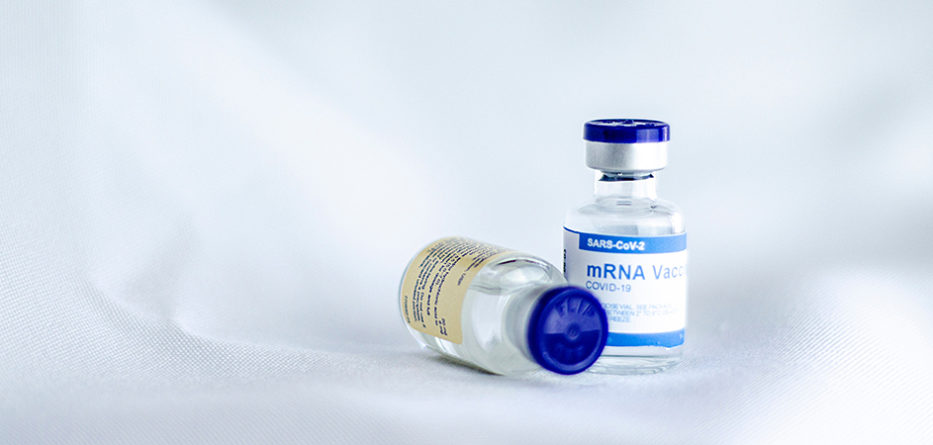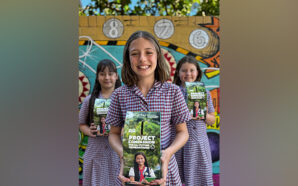Homily for the 18th Sunday in Ordinary Time
Readings: Exodus 16:2-4, 12-15; Psalm 77 (78): 3-4, 23-25, 54; Ephesians 4:17, 20-24; John 6:24-35
1 August 2021
During the Exodus, the people doubted, and wondered where their next meal would come from. Yahweh has Moses tell the people, “Between the two evenings you shall eat meat, and in the morning you shall have bread to your heart’s content. Then you will learn that I, the Lord, am your God.” In the gospel, the people get into their boats crossing the lake and going to Capernaum, looking for Jesus, and looking for so much more. Jesus assures them as he assures us, “I am the bread of life. He who comes to me will never be hungry; he who believes will never thirst.” No matter what our hunger, no matter what our thirst, no matter what our need, the Lord is here for us, satisfying us, meeting us in our need, and even meeting those needs. The scripture scholar Francis Moloney says, “The Mosaic manna provided nourishment for Israel; the true bread from heaven gives life to the whole world.”[1]
LISTEN: https://soundcloud.com/frank-brennan-6/homily-1821
Today’s readings urge us to put our trust in God and to follow his commands. Let’s remember that in the Book of Exodus the people were told to collect only enough manna for each day, because it would not last. They were to trust in God, day in and day out. Those who collected more than they could eat in the day found that the excess “bred maggots and smelt foul”. We need to trust that the Lord will provide what we need each day. There is no place for selfish hoarding. The Lord will provide us with the true bread; the Lord, the bread of life, will protect us if we follow His decrees.
We are enjoying the Olympics running one year late in the midst of a pandemic. Time and again, we are seeing athletes giving their all to obtain what they are seeking. Each time, only one wins gold. We have witnessed the pressures on athletes like Ash Barty, Naomi Osaka and Simone Biles. We have witnessed the humble and gracious triumphs of those like the Australian swimmer Ariarne Titmus who after her first gold medal said, “I feel so fortunate to be here, to be able to do what I love. I’m just from a small town in Tasmania and it just goes to show if you believe you can do something, you can 100% do it if you work for it.” We too are fortunate to be here, able to do what we love, no matter where we come from, able to dedicate ourselves to achieving our goals.
We are on high alert with rolling lockdowns dealing with the Delta strain of the COVID virus, trying to get the balance right. Yesterday was the feast of St Ignatius of Loyola, the founder of the Jesuits. We are celebrating the Ignatian Year which commenced on 20 May, the 500th anniversary of his cannon-ball injury that changed the course of his life and so much more. Ignatius became one of the great decision makers in situations of flux. Nowadays, we are always living in situations of flux. No time is fixed and normal.
We all live with pressure; we all are undergoing change; we all have decisions to make: not just our political leaders and their medical advisers and epidemiologists. Individually, we have to make decisions whether to vaccinate or not, and what vaccine to get now or to wait for. The younger you are, the more complex the decision.
Only six weeks ago, the expert advisory panel to government recommended Pfizer as the preferred vaccine for those under 60. But then just two weeks ago, with further outbreaks, a shortage of Pfizer and the advent of the Delta strain of the COVID-19 virus, the experts urged that those under 60 “who do not have immediate access to Pfizer should re-assess the benefits to them and their contacts from being vaccinated with AstraZeneca, versus the rare risk of a serious side effect.” None of us was helped when the Prime Minister, under pressure from the media, said that he was constantly appealing to the expert panel to change their advice. In the last week, the expert panel has said that those under 60 in the Greater Sydney area “should strongly consider getting vaccinated with any available vaccine” Perhaps those of us living elsewhere should too.
Decisions worth talking about are always difficult. The easy decisions don’t warrant much discussion. We sometimes get told what to do, and for good reason.[2] But more often, we need to make good decisions for ourselves, and for the right reasons. Our decision about vaccination is a real-life experience of making a discerned choice as a member of our community. I commend to you the following approach:
I will be prudent.
I will take good advice.
I will listen to all points of view.
Caring for myself, I will act in my own best interests. But what counts as ‘my own best interests’? Undoubtedly, my own best interests will be served by reducing the risks of adverse side effects from a particular vaccine. But my own best interests will also be served by being a member of a community where the risk of transmission of the virus has been reduced. My own best interests will also be served by living in a community which more quickly can return to regular social and economic activity. My own best interests will be served by living in a world where borders can be open.
So even self-interested prudence might dictate that I do something less than optimal for my own physical health protection. And what seemed optimal for my health as a young person prior to the advent of the Delta strain and prior to the recent breakouts and lockdowns might not be optimal now.
And hang on: I am not just an atomised individual. I am a member of the community. In fact, I am part of many communities. I need to factor in what is in the best interests of all members of my communities of meaning and support. Recall what the Second Vatican Council taught in Gaudium et Spes, the Pastoral Constitution of the Church in the Modern World:
“Every day human interdependence grows more tightly drawn and spreads by degrees over the whole world. As a result the common good, that is, the sum of those conditions of social life which allow social groups and their individual members relatively thorough and ready access to their own fulfillment, today takes on an increasingly universal complexion and consequently involves rights and duties with respect to the whole human race. Every social group must take account of the needs and legitimate aspirations of other groups, and even of the general welfare of the entire human family.”[3]
If I consider only my immediate health interests, I may be overlooking what I can contribute to the common good – the sum of those things necessary so that people can socialise again avoiding the mental health risks of isolation, so that our economy can function well, so that we can get back to being part of a community of nations able to travel and relate to each other.
We all know and admire people, perhaps some of our own parents, who have made self-sacrifices, who have made sub-optimal personal choices so that others including their children and loved ones might have the prospect of better outcomes. Think only of those young Olympians who have been paying tearful tributes to their supportive families back home.
We all know stories of extraordinary people who have made great personal sacrifices so that others, not just their immediate kin, might benefit.
Weighing all these considerations, let’s make decisions of which we can be proud, pleasing decisions with which we are pleased, decisions which we will happily explain to others for whom we care.
The vaccine decision which each of us will make in the coming weeks can be a vocational choice, weighing the risks and benefits for all, and playing our part for the common good.
Let’s hope and pray, as did St Ignatius, that “our only desire and our one choice should be that option which better leads us to the goal for which God created us.”[4] Nourished daily by the bread of life, we can heed Paul’s urging to the Ephesians “not to go on living the aimless kind of life that pagans live” as occurs so readily in lockdown. Rather, by abandoning illusory desires, we can put on “the new self that has been created in God’s way, in the goodness and holiness of truth”.
Fr Frank Brennan SJ is the Rector of Newman College, Melbourne and the former CEO of Catholic Social Services Australia (CSSA).
[1] Francis Moloney, The Gospel of John, Sacra Pagina Series, Volume 4, The Liturgical Press, Collegeville, 1998, p. 212
[2] In the US, the land of the free and the home of the brave, our Jesuit universities are declaring on their websites: “To safeguard the health of the community, all faculty, staff, and students will be required to be fully vaccinated against COVID-19” by the commencement of the academic year. Students can request exemptions for ‘legitimate’ religious and medical reasons. A physician reviews the requests for medical exemptions. A chaplain reviews requests for religious exemptions
[3] Gaudium et Spes #26, available at https://www.vatican.va/archive/hist_councils/ii_vatican_council/documents/vat-ii_const_19651207_gaudium-et-spes_en.html
[4] David Fleming, The Spiritual Exercises of St Ignatius: A Literal Translation and a Contemporary Reading, Institute of Jesuit Sources, St Louis, 1978, p. 23 [23]








